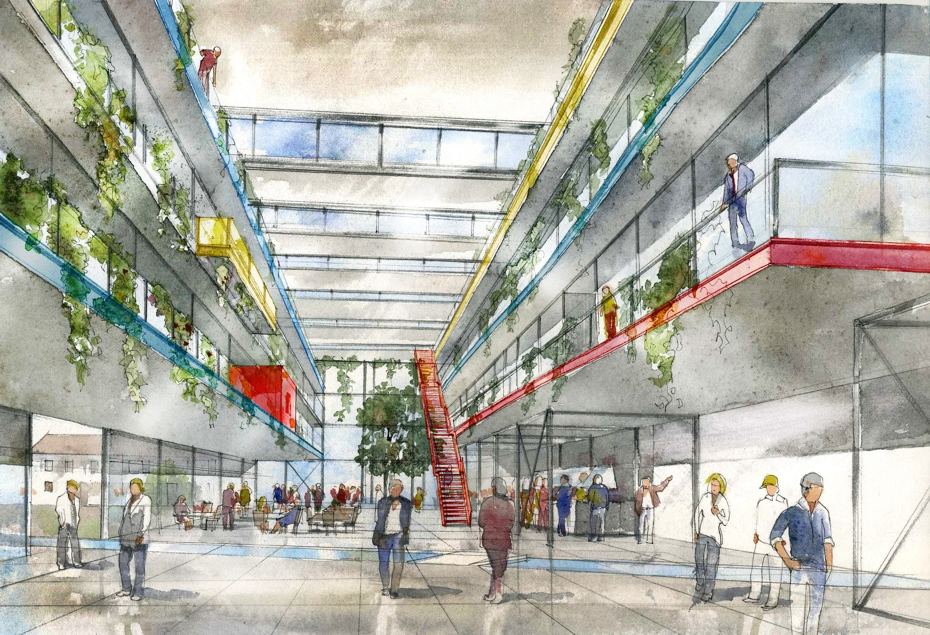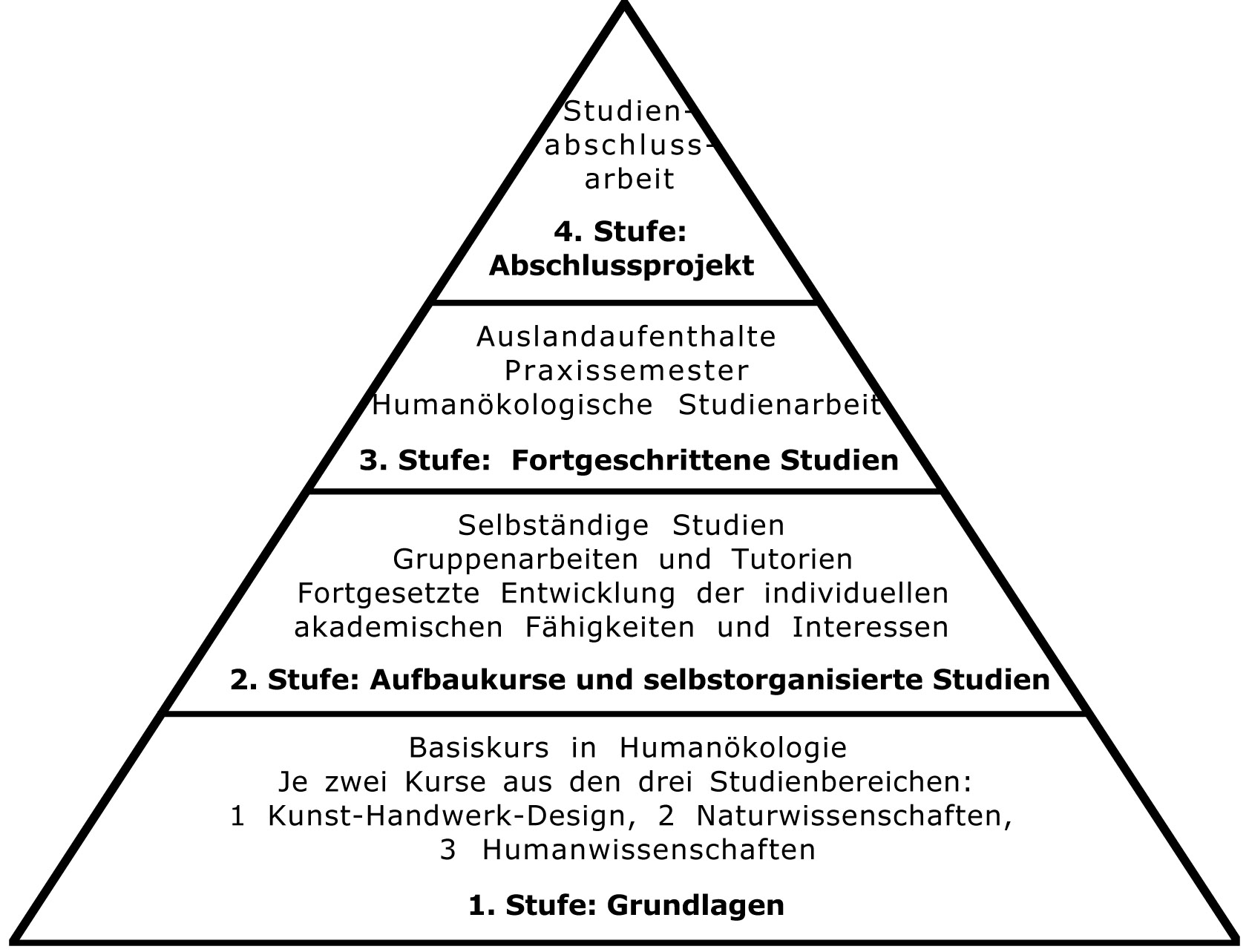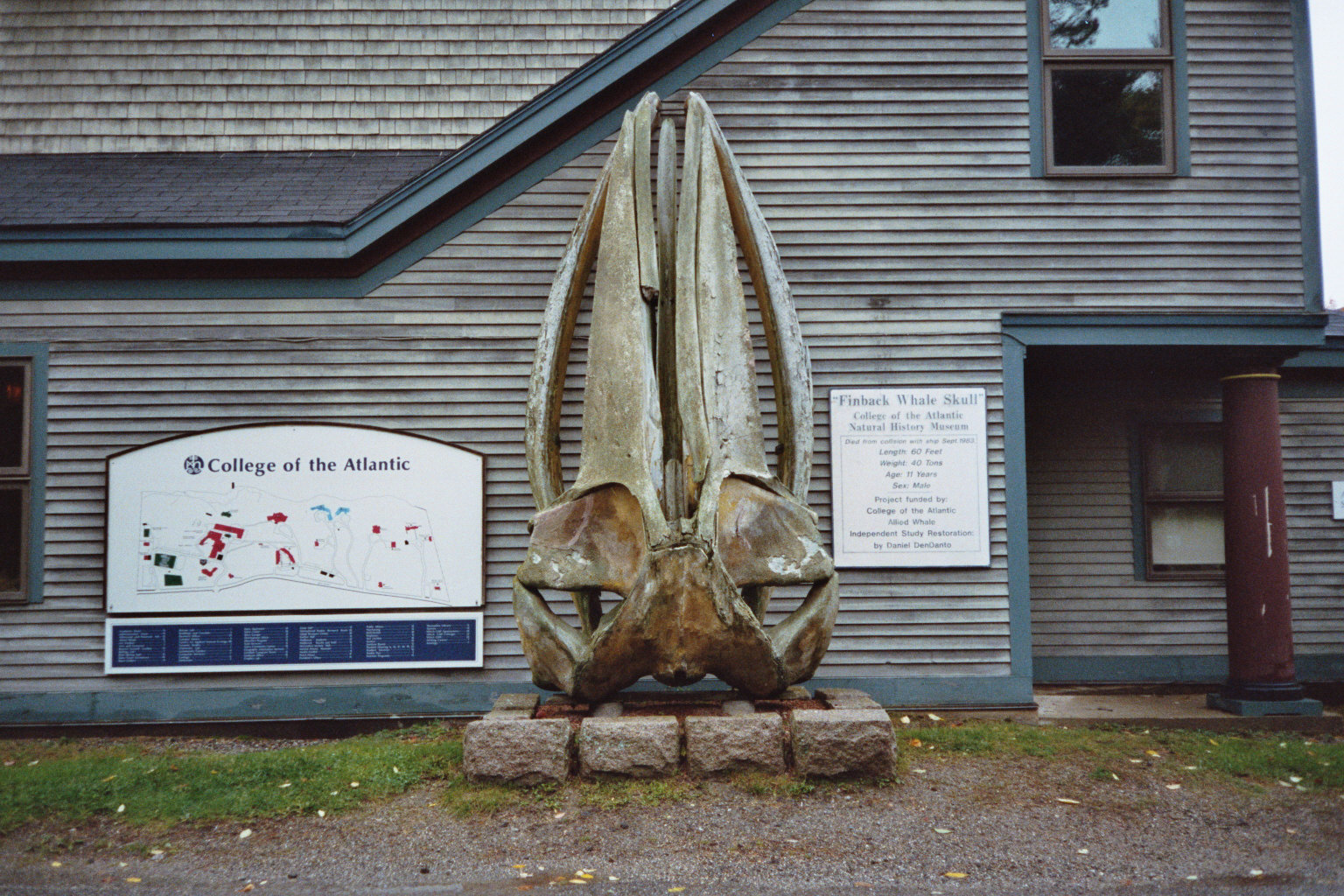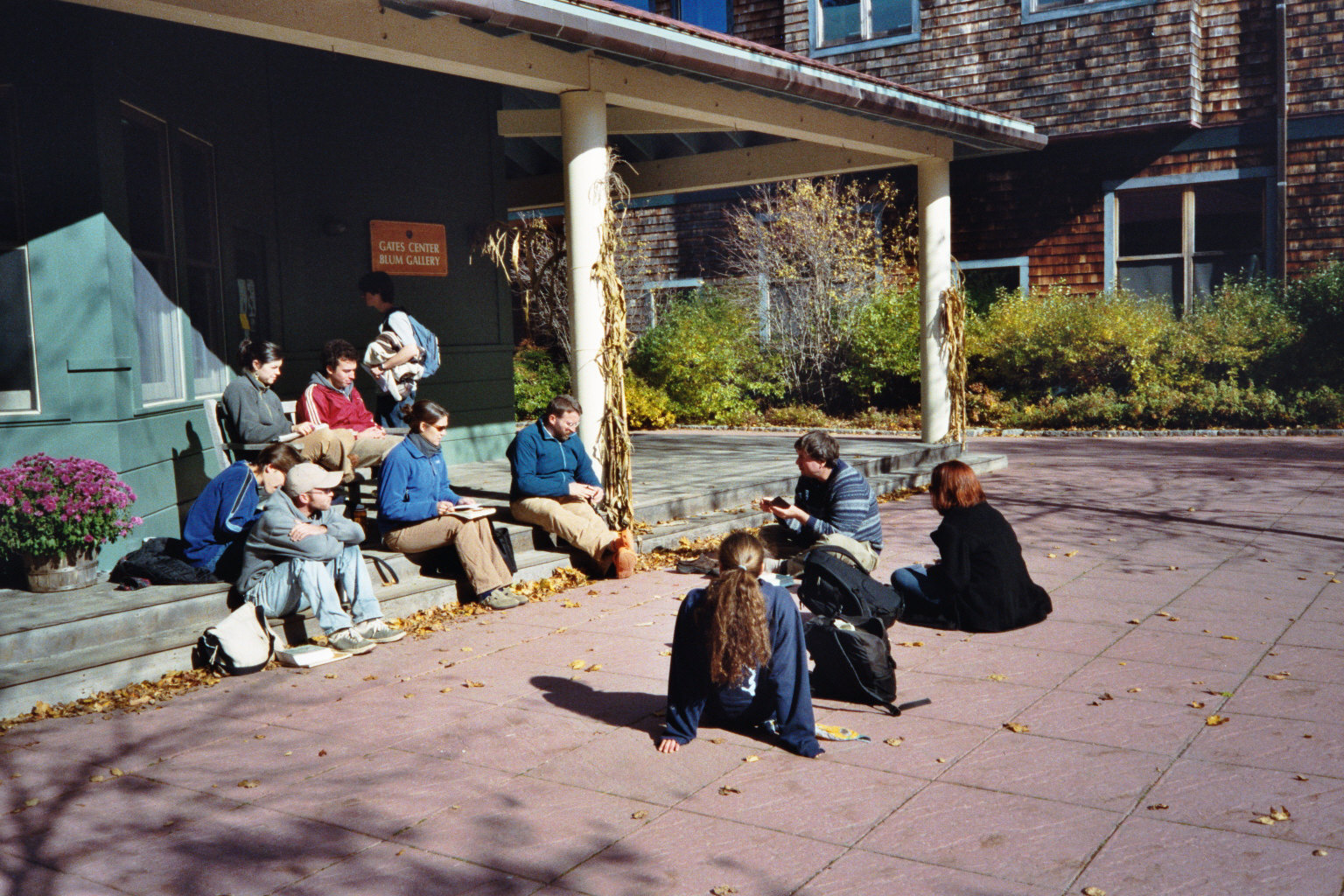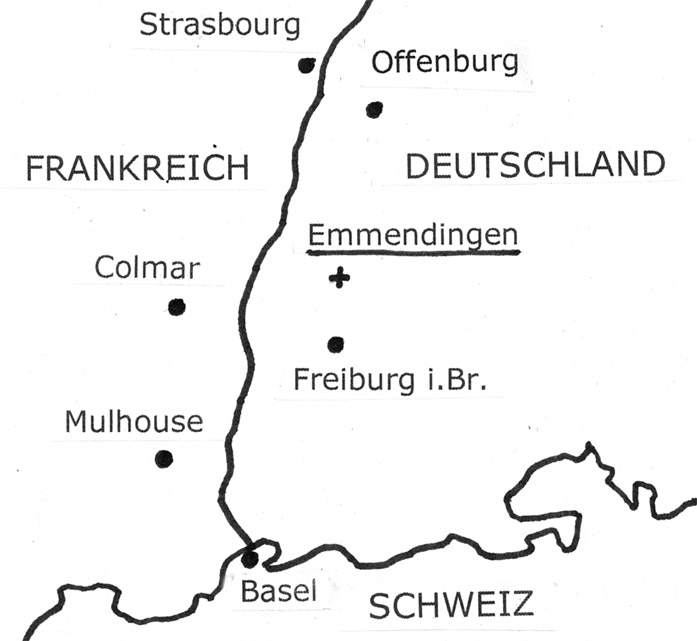- Category: Uncategorised
- Written by Damian
- Hits: 10413
At a glance
A European College of Human Ecology (COHE)! |
An Appeal to Support the Work in Progress - 2015
In cooperation with the College of the Atlantic (www.coa.edu) in Bar Harbor, Maine, USA, a project group of the German Society of Human Ecology (DGH, www.dg-humanoekologie.de) is occupied with the plan to establish a liberal arts college with human ecology as a focus somewhere in the German language area. |
|
A hall of the Wehrle factory in Emmendingen reconverted for use of the college COHE. |
|
A college of this sort does not entertain any kind of vocational or professional training programs but offers a general education allowing students to develop their individual abilities and interests. A human ecology orientation implies that the topic of human-environment relations will permeate all aspects of the curriculum, not only in terms of knowledge, but also in terms of personal concern. Up to now no institution of this type exists in Europe. The world as we know it is under threat, and its deteriorating state implores that such an educational facility be urgently established. Therefore we are in search of committed people who can and want to contribute to a basic change of consciousness and to the constitution of sustainable structures of our civilization! This is an appeal to support our COHE-project in conceptional, organizational and/or financial terms. |
Our Guide: The College of the Atlantic (COA)COA in Bar Harbor, Maine, USA, is a college in the liberal arts tradition with a thematic focus on human ecology. It is a member of “Eco-League”, an association of five similarly oriented colleges. Students enter a four-year program to acquire a “Bachelor of Arts in Human Ecology”, and they can get a “Master of Philosophy in Human Ecology” in two additional years.
“Liberal Arts” stands for an educational concept which does not center on a single discipline leading to a particular profession, but fosters the personal development of students within a broad horizon, bridging disciplines, and with a balance between “head, heart, and hands”. It involves critical and integrative thinking, creative working, the ability to communicate, social responsibility, spiritual self-discovery. Human ecology is a trans-disciplinary endeavor being concerned with the relations in the triangle nature – culture/society – individual. How human existence on earth can become sustainable and nondestructive and ensure a high quality of life for present and future generations, this is the dominant question.
|
|
Structure of the four-year COA bachelor curriculum
|
Why a College of Human Ecology in Europe (COHE)?Liberal arts colleges as well as study programs in human ecology are in Europe few and far between; the combination of liberal arts with human ecology is completely nonexistent. Yet we need such institutions urgently. Why? |
|
Prominent features of the COA curriculum are courses held with small groups in a seminar format, practical project orientation and community involvement. Nature experience also plays an important role. |
|
For an answer we quote Thomas Berry, American ecological theologian and cultural historian, who in his book The Dream of the Earth (1988) argues for a participation of today’s college education in a cultural process of transformation:
“College should be a center for creating the more encompassing visions as well as for communicating such visions to students. The college student … needs to be involved in a significant historical as well as a significant personal process. ... College students should feel that they are participating in one of the most significant ventures ever to take place in the entire history of the planet.”
Berry refers to a human ecological principle, the active participation in the shaping of social change. John Dewey, human ecologist, philosopher and pedagogue, proclaimed it to be part of education as early as 1922 in his book Human Nature and Conduct. It was for him a prerequisite for comprehending human beings and nature as an integrated human ecological process and advancing transformations in an active and democratic fashion. “We seek to do more than just provide a powerful educational experience. We seek to change the world”, it says in one of the COA brochures. An Education for Agents of Transition as a part of a sustainable science should apply to us at COHE as well! |
State of PlanningThe most prominent recent events were the following: With support of the town’s authorities a four-day “Charrette” (participatory workshop) took place in Emmendingen in February 2011. Emmendingen has 30,000 inhabitants, is ideally located north of Freiburg i.Br. in the border triangle Germany-France-Switzerland; an ideal location for the college. Most importantly, the local authorities and residents are extremely supportive of the project. During the Charrette, a number of experts helped to assess possible building sites, to discuss the renovation of existing or the construction of new buildings, to estimate costs involved, to investigate possible synergies for the region and to design a curriculum. Meanwhile a college promotion circle has been formed in Emmendingen to support COHE. |
|
In November 2011 the Council of European Urbanism Germany (CEUD) held its three-day annual conference in Emmendingen, dedicating it to an evaluation of the Charrette outcomes and to the formulation of recommendations under urban development perspectives.
Within its Global Business Week the Maleki-Group hosted in May 2012 Frankfurt a.M. the one-day First International College Forum under the title of “Liberal Arts and Science. Education for Agents of Transition”. Next to representatives of the German Society of Human Ecology it was attended by parties from abroad interested in the college and its human ecology focus. Among them were also two members of the faculty of the COA. In 2013 we established a COHE advisory council with Ernst Ulrich von Weizsaecker in the chair. We are now in the process of further developing the project, step by step, and are kindly asking interested parties for their support, be it in terms of ideas, organization, or financing. The holding of summer schools in 2014 and 2015 together with COA and German universities will provide the opportunity to test educational concepts and to raise the degree of familiarity with the college project. Through the members of the German Society of Human Ecology and their circle of friends we also plan the establishment of a network of COHE sympathizers. |
|
Download this PDF flyer. |
|
Contacts:
Germany: Dr. Wolfgang H. Serbser: This email address is being protected from spambots. You need JavaScript enabled to view it., www.coh-europe.de
Switzerland: Prof. Dr. Dieter Steiner: This email address is being protected from spambots. You need JavaScript enabled to view it., www.humanecology.ch
Bank Account: European College of Human Ecology, |

